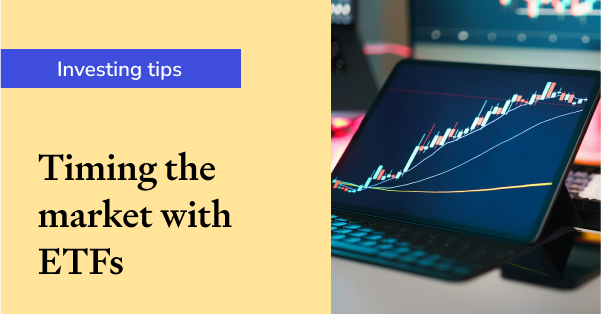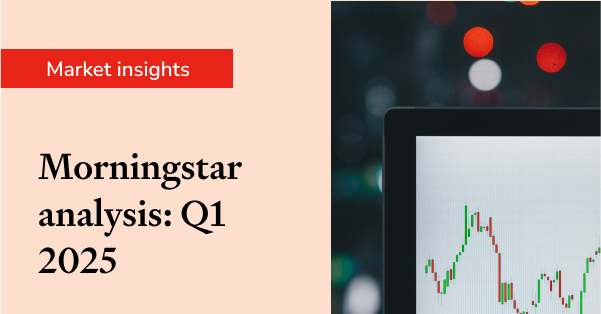Look beyond company guidance for opportunities
The below article is for informational purposes only and does not constitute a product recommendation, or taxation or financial advice and should not be relied upon as such. Please consult with your financial adviser or accountant to obtain the correct advice for your situation.
Late June 2016. Summer in Europe.
I was sitting at a trading desk in Jersey, Channel Islands. The media, the financial community, David Cameron, Mark Carney (governor of the Bank of England) had all warned of the terrible risks should the UK vote to leave the EU.
And even at the betting shops, the money — in total — was well against Leave.
My colleague Raj, a forex specialist felt different. And he also had a handle on the conversations of older people across England.
‘They’re going to vote to leave,’ he said. No shadow of doubt in his voice.
I was struggling to believe him. ‘Want to bet on that?’
We didn’t end up putting any money down. At least not until the next day. When the pound fell to levels not seen since 1985. And David Cameron resigned.

Had you been able to predict this, you could have liquidated high positions earlier. And bought after the Brexit crash.
That year, purchases of the crushed pound and crumbled FTSE stocks at bargain-basement prices went on to boost my portfolio. In July, things bounced back, and for the rest of that year, it was a good place to be.
Macro events drive opportunity, especially with forex
One thing I like about Sharesight is that it tracks currency gain.
When investing globally in stocks, there are three drivers of return:
-
Favourable movement in forex pair
-
Capital gain in the share price
-
Dividend income
In my experience, trading of most currency pairs gets driven by short-term traders and their instant interpretations of events. Hence the sell-off of sterling against USD, AUD, NZD and a number of other currencies got overdone.
Then the mainstream media predicts more dire consequences than is usually the case. When Boris Johnson took the Leave mantle from Theresa May earlier this year, the pound suffered for months.
Back in July, when Johnson took over the leadership of the government, we were buying GBP.NZD at 1.85.
The New Zealand economy was softening. And the Brexit risk (and dire warnings from the financial mainstream) was well overdone.
As I write, GBP.NZD is up around 1.94. GBP.USD around 1.23.
But there was another even more telling area that observers could have used to predict the Brexit outcome. If you looked at betting shops up and down the UK, the quantum of money was on Remain. However, by actual number of individual bets, you could see that Leave was actually ahead.
To invest well, you have to stay curious. You have to pull back the layers and bias on what’s reported by journalists and regulators, most of whom are not traders or investors.
Look beyond company guidance
You now need to find assets and instruments to profit from market trends. And as you’re most likely using Sharesight, my guess is you favour stocks in quality companies. So do I.
Of course, investor reports, presentations, analyst ratings and so forth are useful. But they’re often tipped in favour of buying the company’s shares. You know that line about barbers and haircuts, don’t you?
What’s more interesting is to undertake some outside analysis:
-
Run a search for competitors. How are they doing? Are they taking ground? What do they have in store?
-
Review job vacancies and advertisements from your target company. Are they hiring? How much do they pay? How do former employees review them? There are a couple of sites online that rank employers.
-
Who are they looking to employ? Marketing hires make me the most nervous. Since it can often mean the business needs an additional — usually costly push — to go further in the marketplace.
-
On the other hand, if the business is looking to employ numerous operational staff to fulfil the goods or services they provide — that can be a good sign. But it can also warn of skill shortages.
-
Connect with people in the business and get a sense of how they feel about things. In the case of one UK pick, I sent a quick message via LinkedIn. It answered a key question I had.
And there are many other alternative areas you can look into that conventional analysts combing annual reports often miss.
Simon is the publisher at Wealth Morning and has been investing in the markets since he was 17. He recently spent a couple of years working in the hedge-fund industry in Europe. Before this, he owned an award-winning professional-services business and online-learning company in Auckland for 20 years. He has completed the Certificate in Discretionary Investment Management from the Personal Finance Society (UK), has written a bestselling book and manages global share portfolios.
You can find alternative market commentary targeting hidden opportunities in the global markets and download your free guide at Wealth Morning.
FURTHER READING

8 ways to use Sharesight's custom groups feature
This blog explains our custom groups feature, including strategies that can help you gain deeper portfolio insights and make more informed investing decisions.

You can time the market – and ETFs are the way to do it
Marcus Today founder and director Marcus Padley discusses timing the market, and how investors can do this using exchange-traded funds (ETFs).

Morningstar analyses Australian investors’ top trades: Q1 2025
Morningstar reviews the top 20 trades by Australian Sharesight users in Q1 2025, and reveals where their analysts see potential opportunities.